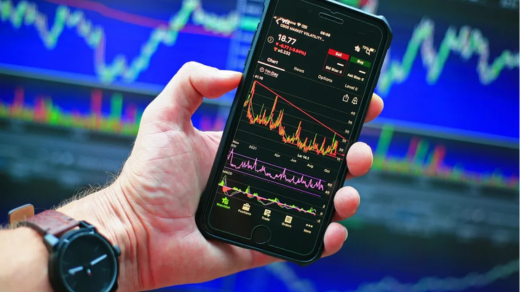- What is cryptographic money?
Reply:
Digital money is a sort of computerized or virtual cash that involves cryptography for security. It works on decentralized networks in light of blockchain innovation, making it impervious to focal control and control. The most notable digital currency is Bitcoin, however there are huge number of other cryptographic forms of money (e.g., Ethereum, Litecoin, Wave).
- How do digital forms of money function?
Reply:
Cryptographic forms of money work utilizing blockchain innovation, a decentralized and disseminated record that records all exchanges across an organization of PCs. Each “block” of exchanges is connected (or “binded”) to the past one, making a permanent record. Digital currencies utilize cryptographic techniques to get exchanges, control the formation of new units, and check the exchange of resources.
- For what reason is cryptographic money considered secure?
Reply:
Digital money exchanges are gotten through cryptographic calculations, which guarantee the honesty and security of exchanges. Also, the decentralized idea of the blockchain implies that no focal power controls the framework, making it less defenseless against hacks or misrepresentation. Public and confidential keys permit clients to deal with their computerized resources safely.
- What is a blockchain?
Reply:
A blockchain is a dispersed record innovation that records exchanges across an organization of PCs. Each “block” contains a rundown of exchanges, and each block is connected to the past one, shaping a chain. Blockchain guarantees straightforwardness, security, and changelessness, which are primary to the activity of most cryptographic forms of money.
- What is Bitcoin, and how can it vary from other digital forms of money?
Reply:
Bitcoin (BTC) was the principal digital money, made by an unknown individual or gathering known as Satoshi Nakamoto in 2009. Bitcoin works on a proof-of-work agreement system and is essentially utilized as a store of significant worth or computerized gold. Other cryptographic forms of money like Ethereum, Litecoin, and Wave (XRP) contrast as far as hidden innovation, use cases, and exchange speeds.
- What are altcoins?
Reply:
Altcoins are any digital currencies other than Bitcoin. Some well known altcoins incorporate Ethereum, Wave (XRP), Litecoin, and Cardano. Altcoins frequently have various highlights, agreement systems, and use cases contrasted with Bitcoin.
- What is Ethereum and how can it vary from Bitcoin?
Reply:
Ethereum (ETH) is a decentralized stage for building savvy contracts and decentralized applications (dApps). While Bitcoin essentially works as a store of significant worth, Ethereum permits engineers to make applications that sudden spike in demand for its blockchain. Ethereum utilizes savvy contracts, which consequently execute exchanges when certain circumstances are met.
- What are savvy contracts?
Reply:
Savvy contracts are self-executing contracts with the particulars of the arrangement straightforwardly composed into code. These agreements consequently execute activities (like moving cryptographic money or resources) when predefined conditions are met. They work on blockchain networks like Ethereum and eliminate the requirement for middle people.
- How might I purchase digital currency?
Reply:
Digital currencies can be purchased on cryptographic money trades like Coinbase, Binance, or Kraken. You can purchase crypto utilizing customary installment techniques like credit/check cards, bank moves, or even PayPal, contingent upon the stage. Once bought, cryptographic forms of money are put away in computerized wallets, either programming based (on the web) or equipment based (disconnected).
- What is a cryptographic money wallet?
Reply:
A cryptographic money wallet is a computerized instrument used to store, send, and get digital currency. There are two fundamental sorts:
Hot wallets: Programming based wallets associated with the web (e.g., versatile applications or web wallets).
Cold wallets: Equipment wallets (e.g., USB drives) that store digital currencies disconnected for added security.
- What are the dangers of putting resources into digital money?
Reply:
The dangers of putting resources into digital money include:
Unpredictability: Digital money costs can be profoundly unstable.
Administrative vulnerability: States overall are as yet deciding how to control digital forms of money.
Security chances: Albeit secure, cryptographic money trades and wallets can be hacked.
Absence of buyer securities: Digital currencies frequently come up short on same purchaser insurances as customary monetary frameworks.
- What is mining with regards to digital currency?
Reply:
Mining is the interaction by which new digital money exchanges are checked and added to the blockchain. Diggers utilize strong PCs to take care of intricate numerical issues. For their endeavors, excavators are compensated with recently made digital currency coins. Bitcoin and Ethereum (before Ethereum 2.0) utilize verification of-work mining, while different coins might utilize elective strategies.
- What is the fate of digital money guideline?
Reply:
Digital currency guideline is as yet developing. Legislatures are chipping away at making systems for managing digital money trades, introductory coin contributions (ICOs), and tax assessment. Future guidelines might expect to guarantee security, lessen misrepresentation, and forestall illegal tax avoidance while cultivating advancement. The administrative scene will probably fluctuate by country, setting out the two difficulties and open doors for the business.
- What is a digital money trade?
Reply:
A cryptographic money trade is a stage where clients can purchase, sell, and exchange digital currencies. Instances of trades incorporate Coinbase, Binance, and Gemini. A few trades offer fiat-to-crypto exchanging (e.g., USD to BTC), while others spend significant time in crypto-to-crypto exchanging (e.g., ETH to BTC).
- What is a stablecoin?
Reply:
A stablecoin is a digital money that is fixed to the worth of a customary cash, like the US Dollar or Euro, to keep up with cost dependability. Models incorporate Tie (USDT) and USD Coin (USDC). Stablecoins intend to consolidate the benefits of advanced monetary standards with the steadiness of government issued types of money.
- What is decentralized money (DeFi)?
Reply:
Decentralized finance (DeFi) alludes to monetary administrations based on blockchain networks that work without delegates, like banks or specialists. DeFi stages empower exercises like loaning, acquiring, exchanging, and yield cultivating utilizing shrewd agreements, and they frequently use digital forms of money like Ethereum.
- What is the contrast among concentrated and decentralized trades?
Reply:
Concentrated trades (CEX): These stages are overseen by a brought together association (e.g., Coinbase, Binance). They go about as delegates and regularly offer more straightforward UIs however may expect clients to trust the stage.
Decentralized trades (DEX): These stages work without a focal power and permit clients to exchange straightforwardly from their wallets (e.g., Uniswap, SushiSwap). They offer more protection yet can be less easy to use.
- What are Non-Fungible Tokens (NFTs)?
Reply:
NFTs are remarkable computerized resources that address responsibility for explicit thing or piece of content, frequently craftsmanship, music, or video. Dissimilar to digital currencies like Bitcoin, which are compatible, NFTs are exceptional and can’t be duplicated. They are ordinarily traded on NFT commercial centers like OpenSea and use blockchain innovation to check possession.
- Could digital money at any point supplant customary cash?
Reply:
While cryptographic forms of money can possibly disturb customary monetary standards, their boundless reception as a worldwide cash faces difficulties, for example, instability, versatility issues, and administrative obstacles. National Bank Computerized Monetary standards (CBDCs), advanced forms of conventional monetary standards, are being investigated by different nations and may assume a part later on monetary framework.
- What is the ecological effect of digital currency?
Reply:
Digital currency mining, especially Bitcoin mining, is energy-concentrated because of the evidence of-work agreement system. This has raised worries about the natural effect, particularly when diggers utilize non-sustainable power sources. In any case, some fresher digital currencies (e.g., Ethereum 2.0) are progressing to more energy-effective agreement systems like evidence of-stake.
- What is the job of digital money in worldwide money?
Reply:
Cryptographic money is continuously turning into a piece of the worldwide monetary framework by giving options in contrast to conventional banking, decreasing exchange expenses, and offering new venture open doors. Stablecoins and national bank computerized monetary standards (CBDCs) could coordinate cryptographic money into public economies, giving the advantages of advanced resources without the unpredictability of current digital currencies.
- How would I safeguard my digital money from burglary or misfortune?
Reply:
To safeguard your cryptographic money:
Use equipment wallets (cold capacity) for long haul stockpiling.
Empower two-factor verification on trades and wallets.
Keep your hidden keys secure and never share them.
Reinforcement your wallet recuperation phrases in various secure areas.
- How does cryptographic money affect the financial business?
Reply:
Cryptographic money and blockchain innovation represent a test to conventional banking by offering decentralized, borderless monetary administrations. Banks are progressively investigating how to incorporate blockchain into their tasks, decrease exchange expenses, and further develop straightforwardness. Be that as it may, digital currencies additionally present contest to banks in regions like installments and cash moves.
- What is the capability of digital money in agricultural nations?
Reply:
Digital forms of money have critical expected in non-industrial nations with unsteady monetary standards or immature financial framework. They can offer an option for people to store esteem, move cash globally, and access monetary administrations without requiring a customary financial balance.
- What does the future hold for cryptographic money?
Reply:
The eventual fate of digital currency is questionable, however it can possibly turn out to be more coordinated into worldwide money, driven by advancement in blockc








